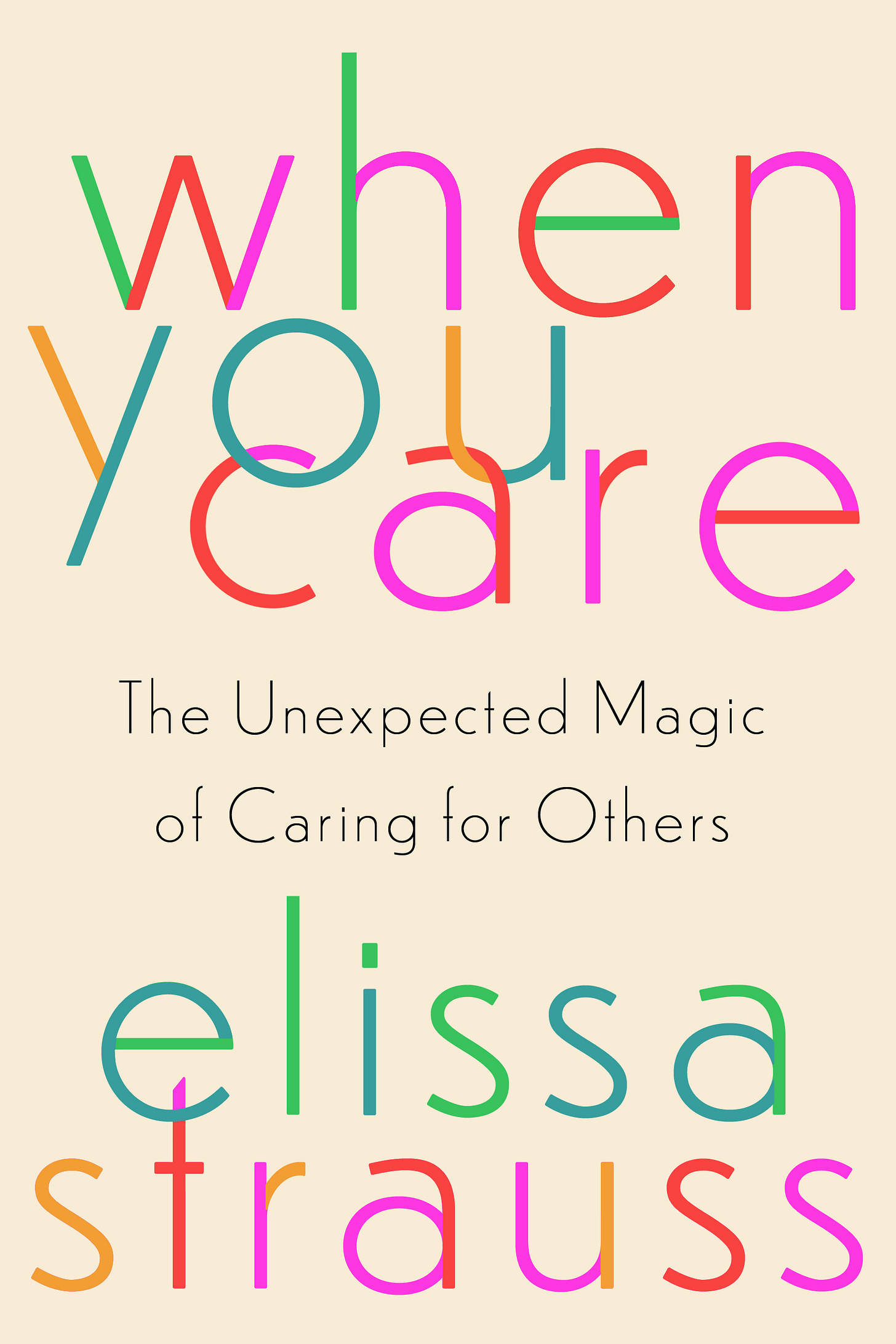I probably don’t need to tell you about J.D. Vance’s 2021 comments about the United States being run by “childless cat ladies” who, because of their childfree status, have no “stake in the future of this country.” If you are alive and have an internet connection, you heard about it.
Essentially, he argued that a woman’s maternal status is one of the most important factors to consider when gauging her dedication to public life, her commitment to a better future…and her morality overall, which was ultimately the message behind his words. False! I do believe motherhood can ethically shape us for the better, but I don’t believe this is a universal phenomenon or the only way to get there.
In response, we had voices saying that of course a woman doesn’t need to have kids to be deeply, personally invested in the well-being of others, today or in the future. True!
But as someone who has spent half a decade now unpacking how invisible care is in our culture, I’d encourage us to not stop there. If we do, we let Vance and his comrades define the terms of who is a parent or caregiver, how care works, and how that care is supposed to change us and connect us with other people, present and future.
In his equation, care takes place in neat, traditional, arrangements. Parents — mostly biological moms — care for their children in nuclear, two-parent families, and, through that connection with their children, feel more deeply responsible for humanity at large.
What this ignores is the fact that the giant endeavor that is caring for children isn’t ever this neat, or limited to such clearly defined relationships like parent and child. Instead, care for children happens in networks, concentric circles, Russian nesting dolls of primary and secondary and tertiary caregivers caring for other people’s children, friends, or other dependents. Cat ladies are often what anthropologists call “alloparents,” or the larger extended groups of adults who help make sure our children survive and thrive.
We live in a society that has managed to convince us that care is a manageable and lovely endeavor that can be managed on our own as long as we parents (moms) are just giving enough. (This is a big fat lie. We simply can not care well, and have healthy care relationships, if we do all the care by ourselves.) With this ubiquitous fiction that care is, and should be, mostly the responsibility of the parents (moms), it becomes all too easy for people like Vance to erase the people who help parents care for their children.
The childfree alloparents, “cat ladies,” in my life include: my sister-in-law, who has frequently cared for my children in both practical and spiritual terms over the past decade; at least eight of the preschool teachers my children had over the years who didn’t have kids of their own; and two long-term nannies we had for our children who bonded with them and shaped them in ways that will last a lifetime.
But the care doesn’t end there. The cat ladies in our lives don’t just care for children, they also care for us parents. Because when you care for another, you need care, too. And self-care doesn’t cut it.
Cat ladies bring us over dinner, force us to get out of the house, put on a dress and have a cocktail or brunch, they listen when we complain about our kids and spouses, they help clean-up after our kids’ birthday parties when everyone else had to bail because their kids were crashing hard from the sugar and excitement, and so on and so on. This care helps parents be better parents—which helps, of course, the kids.
A culture that really values caregiving, a culture that sees caregiving as way to cement our bonds with one another and the future of tiny people, is one that sees care as a play in which there are many actors—not just mom and dad.
Real family values isn’t about one type of family structure, or any individual woman’s procreation choices. It is about seeing the wide variety of networks of care taking place all around us, and supporting those networks so they may grow and flourish.
In a more recent interview, Vance said that what “brings the most meaning to life is family, not all these weird little accomplishments and degrees and everything else.” I don’t entirely agree and nor does he; someone averse to “weird little accomplishments” wouldn’t be running for vice president. But are family relationships central to living a meaningful life? Yes, they are.
Where Vance and I are different is how we define “family.” Mine includes the cat ladies.
If you want to better understand how care has been made invisible, and what the world would look like if it was made visible, check out my new book, “When You Care.”
Rebecca Traister called it “urgent and necessary,” Anne-Marie Slaughter, “a very-important book,” Eve Rodsky said it is “destined to be a modern classic,” and Brigid Shulte said it is “brilliantly argued.” I’ve been told by many that it feels like “real care for parents and caregivers,” which I just love. More about the book here.






Yeah!!! All of my grandmother’s siblings had kids (and grandkids!) except for one of her sisters, who joined a religious order. Yet she provides an extremely important function within our family. One could argue she does more caring than any of her childbearing siblings. She provides a wealth of spiritual council, introduces everyone to new people and ways of thinking, and connects us to the larger community at large. She is able to spend her time thinking about things like god and social justice because she made the choice not to have children. And she is universally adored by all her family members. The point of family and relationships is that different people provide different functions.